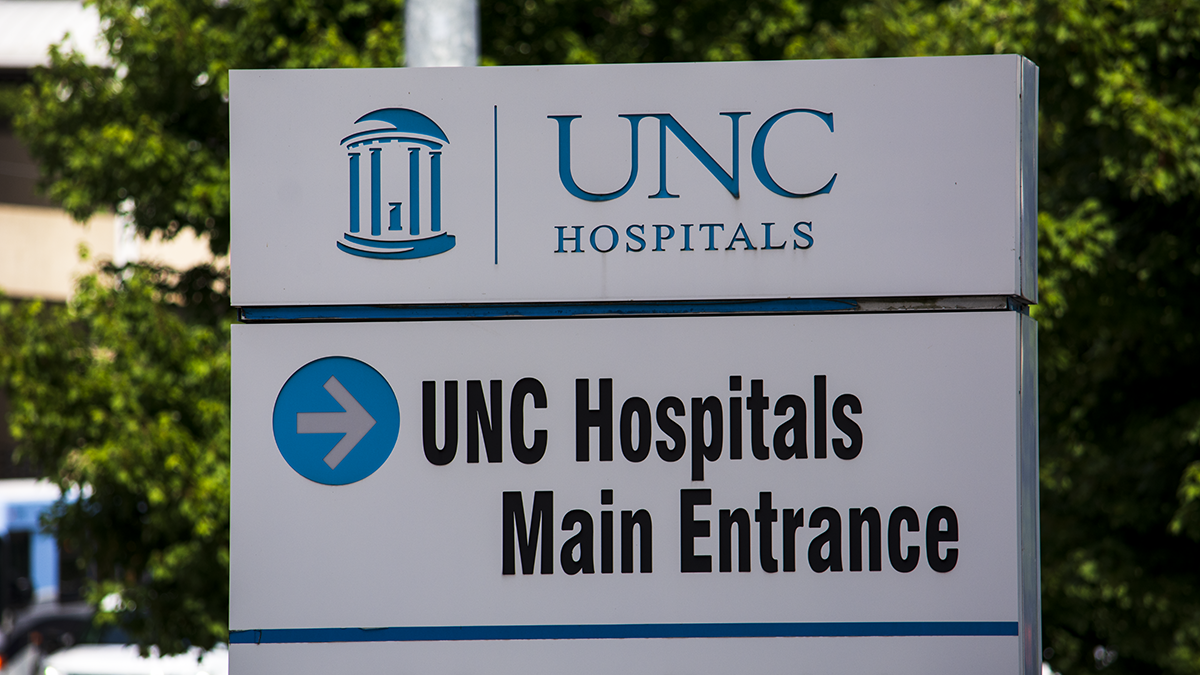Hospitals all over the country, including UNC Health, are now offering some patients the option to receive acute-level care at home, even for conditions as serious as congestive heart failure and pneumonia.
Hospital-at-home programs are for patients who need hospital care but are well enough to remain at home with their loved ones while they receive it. Now, residents in the Triangle can access these services through UNC Health’s Advanced Care at Home program.
“We provide a variety of services, including infusions, diagnostic testing, and visits with nurses, nurse practitioners, and physicians.” said Dr. Meera Udayakumar, the medical director of the Advanced Care at Home program. “The model allows for patients to be admitted to the hospital, but their hospital room is actually their home.”
At UNC Health, when patients come into the emergency department, they’re evaluated as usual to determine what type of treatment and care is needed. But now, if a patient requires hospitalization, they may be offered the opportunity to participate in Advanced Care at Home.
Patients who qualify for the program are transferred back to their residence where providers will deliver equipment to monitor blood pressure, heart rate, oxygen levels and weight. Udayakumar said offering at-home and telehealth services comes with a variety of benefits, especially amid the pandemic when the healthcare system is strained.
“We’re definitely seeing that there are more patients in need of hospital care now,” Udayakumar said, “and this model allows us to treat the most acutely ill patients in the traditional brick and mortar facility. With taking care of additional patients in the home setting, this means overall we’re able to serve a larger number of patients.”
People using the hospital-at-home program are ill enough to be in the hospital, but not critically ill enough to require intensive-level care. Roy Underhill is just one of the 70-plus patients that have been treated through the program since its inception in August.
“I was lying in the emergency room, hooked up to an IV and they said, ‘you’ve got to be in the hospital for another three days, or you can go home, and we will bring the hospital to you,’” said Underhill.
In November, Underhill was battling Septicemia, or blood poisoning, but was given the option to receive the care he needed from the comfort of his own bedroom.
“They said that we have a new program, and we will have folks come out and help you do your infusions of antibiotic,” Underhill said. “And so, you’ll be treated as an inpatient, but you’ll be in your own bed at home in front of your own TV – and I said that’s great, I’ll take it.”
UNC’s hospital-at-home team consists of nine paramedics, four nurse practitioners as well as a select group of home-based service providers. Underhill said two to three times a day a paramedic or another medical personnel would show up to fix up his antibiotic infusions, check his vitals or just see if he needed anything.
Outside of these in-person visits, Underhill said patients are also set up with new technology to keep in constant communication with their providers.
“There was an iPad there with buttons that I could press that would connect me with a nurse within seconds any time I needed,” Underhill said. “There was a wrist radio on that I could press, and it would also connect me with them. So, I had three ways to connect with the hospital should anything be needed.”
UNC’s Advanced Care at Home program is currently enrolling patients from UNC REX, UNC Hospital, and UNC Hillsborough, providing at-home care within a 30-mile radius of each of those campuses. This meant, even out in Saxapahaw, Underhill was covered.
UNC Health said there is no difference in cost to the patient if they are covered by an eligible insurer (which currently includes traditional Medicare, Medicaid, Aetna Medicare Advantage, United Medicare Advantage). Research on this care model suggests that total cost of care can also be lower in home-hospital models like UNC’s. Underhill’s story is a testament to that research.
“The first thing I asked of course was about insurance,” Underhill said. “This was completely covered by my insurance. And it was also much cheaper, which was a surprise, because folks are having to travel out to where I was. But it’s much cheaper than being in the hospital. So, it saved the expense, it freed up a room at the hospital where it might be needed and kept me safer from the possibility of hospital infections.”
Lead photo via Modern Healthcare.
Chapelboro.com does not charge subscription fees. You can support local journalism and our mission to serve the community. Contribute today – every single dollar matters.








